.
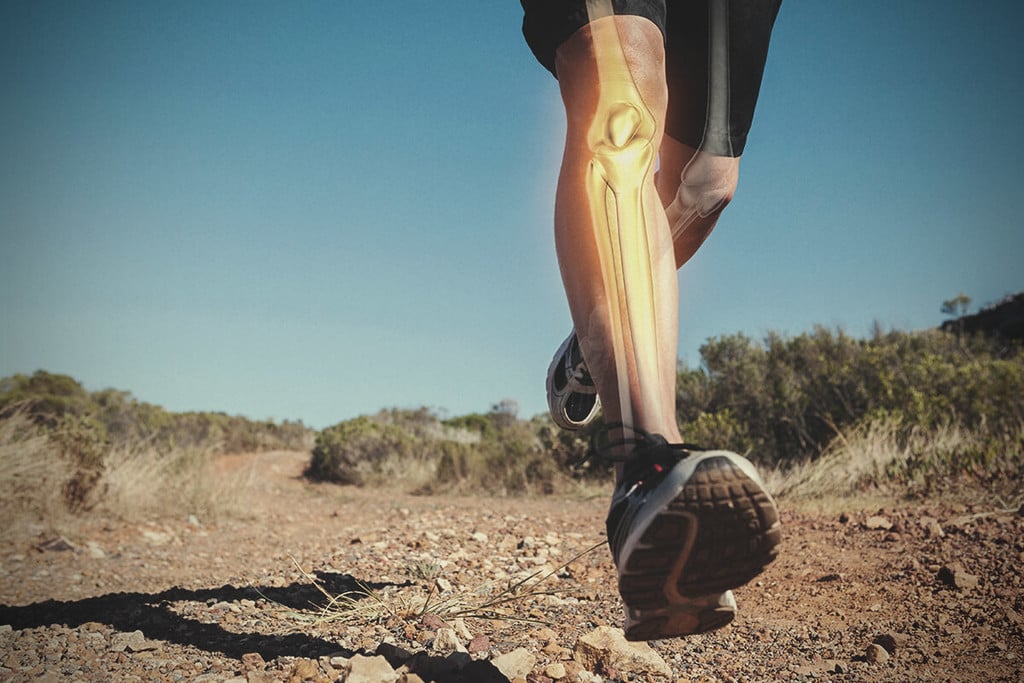
Cannabis for Bone Health: Can It Help?
Many of us take our skeletal system for granted. We're typically more concerned with training our muscles to lift more weights and boosting our cardio to help us run further and faster. But bones are vital for our health. They provide structure, protection, and even make red and white blood cells. But can cannabis improve bone health? If so, how?
Contents:
Molecules from the cannabis plant can impact almost every aspect of human physiology, including bones. They achieve this by interacting with a body-wide network known as the endocannabinoid system (ECS). Although research is still early in this domain, ongoing cell and animal studies paint a picture of the role cannabis could play in bone health. Below, you’ll find out why healthy bones are so important, how to maintain bone health, and what, if any, bone-related conditions cannabis might help to treat in the future.
Why Bone Health Is Important
First of all, without bones, you’d be a puddle of tissue on the floor. This lifestyle might appeal to the more relaxed among us, but we really wouldn’t get much done in this state. Bone gives the body structure. It serves as a scaffold to which our skeletal muscle originates and attaches. Most muscles cross at least one joint, and contraction of muscle enables us to move joints in order to produce motion.
Structure and movement are obviously extremely important to the survival of an organism. Without these traits, we wouldn’t have made it very far over the last 300,000 years of our species’ history. But bone serves as much more than an articulating scaffold. These rigid organs also protect us, make crucial cells, and store key nutrients. The most important roles of bones include:
| Protection | Alongside muscles, bones serve as biological armour. They shield our vital organs from blunt force trauma. Imagine how exposed your lungs and heart would be without a rib cage to guard them. |
| Mineral reservoir | Remember all those times your mum pestered you to finish your milk? This might have annoyed you, but she was only trying to benefit your bones! The skeleton serves as a reservoir of minerals in the body, and stores 99% of the body’s calcium and 85% of phosphorus. |
| Blood cell production | Bones are hard on the outside, but they contain a spongy centre known as the bone marrow. Here, the body produces red blood cells important for oxygen transport, and white blood cells paramount for immunity. |
| Protection | Alongside muscles, bones serve as biological armour. They shield our vital organs from blunt force trauma. Imagine how exposed your lungs and heart would be without a rib cage to guard them. |
| Mineral reservoir | Remember all those times your mum pestered you to finish your milk? This might have annoyed you, but she was only trying to benefit your bones! The skeleton serves as a reservoir of minerals in the body, and stores 99% of the body’s calcium and 85% of phosphorus. |
| Blood cell production | Bones are hard on the outside, but they contain a spongy centre known as the bone marrow. Here, the body produces red blood cells important for oxygen transport, and white blood cells paramount for immunity. |
What Supports Bone Health?
Nutrition and movement. It’s as simple as that. Food provides the fundamental building blocks, and movement provides a physical stimulus that forces the body to keep remodelling bone in a favourable way.
Bone is dynamic tissue that contains numerous types of cells. Osteoblasts are tasked with laying down new bone, whereas osteoclasts strip away old bone tissue. Good nutrition and adequate exercise keep this cellular activity in balance. However, a lack of movement tells the body to ramp up osteoclast activity and reduce bone density. This can result in conditions such as osteoporosis—a thinning of the bone that leads to an increased risk of fractures.
To keep your skeleton healthy and your bones dense, check out these tips:
- Resistance training: Exercise plays a huge role in bone health. Every time you lift some weights, your body gets a signal that it needs to maintain, and even increase, bone density to deal with the physical stress involved. This principle is known as Wolff’s law, which states that bones will adapt to the stress and demands placed on them.
- Eat enough protein: Many people think of bone as a solid mass of calcium. However, the skeleton contains around 50% protein, mostly in the form of collagen. Unlike muscle and connective tissue, bone gets its sturdiness from high levels of minerals integrated into its matrix. Low levels of dietary protein can decrease calcium absorption and affect bone formation.
- Consume calcium-rich foods: Calcium helps to reinforce bone and support its rigid structure. Foods high in calcium include seeds, cheese, yoghurt, fish, beans, and lentils.
- Get plenty of vitamin D: Vitamin D plays a key role in bone health and helps the body absorb calcium. Adequate sun exposure helps to synthesise vitamin D, and foods such as mushrooms, fatty fish, and cheese provide high levels of the nutrient.
Cannabis and Bone Health: What Does the Research Say?
The tips above can help most people maintain healthy bones. However, sometimes people simply can’t exercise or access good-quality nutrition, or choose not to engage in both. Over time, this can lead to the development of a host of musculoskeletal conditions. But these illnesses aren’t exclusive to sedentary populations.
Joint issues can strike healthy, athletic populations due to wear and tear, and hormonal changes and other factors involved in ageing can change bone density and joint integrity. Thankfully, researchers are exploring novel ways to keep the bones healthy when certain conditions rear their heads. Many scientists are turning their attention toward cannabis for potential solutions.
The Role of the Endocannabinoid System in Bone Health
To understand how cannabis can affect bones, we need to briefly touch upon the endocannabinoid system (ECS). This physiological network includes signalling molecules (endocannabinoids), receptors, and enzymes that break down and build endocannabinoids. ECS receptors occur on different cell types all throughout the body, including immune cells, skin, muscle, and bone.
The ECS plays a regulatory role across many different systems, and works to keep everything in balance—a state known as homeostasis. Through this mechanism, it helps to regulate mood, appetite, metabolism, and bone remodelling. The list of ECS receptors continues to grow as researchers get to grips with this system. The three that appear most important in bone health are cannabinoid receptor 1 (CB1), cannabinoid receptor 2 (CB2), and transient receptor potential vanilloid 1 (TRPV1).
Osteoblasts and osteoclasts, the bone cells that regulate bone mass, express these important receptor sites. Interestingly, researchers discovered several cannabinoids before they came across the ECS. The receptors of this system earned their name because cannabinoids bind to them and change their activity. This means that some cannabis constituents have the ability to bind to receptors that directly impact bone remodelling.
But not all cannabinoid receptors promote bone density. In fact, the ECS has the ability to both boost and break down bone. More specifically, CB2 activation promotes osteoblast activity (the cells that lay down new bone), whereas CB1 and TRPV1 promote osteoclast activity (the cells that break down bone tissue).
Researchers are exploring the role of CB2 agonists (molecules that bind to the receptor) in the promotion of bone remodelling. Several studies have also linked the pathophysiology of some bone and joint conditions to changes in the ECS. Find out more below.
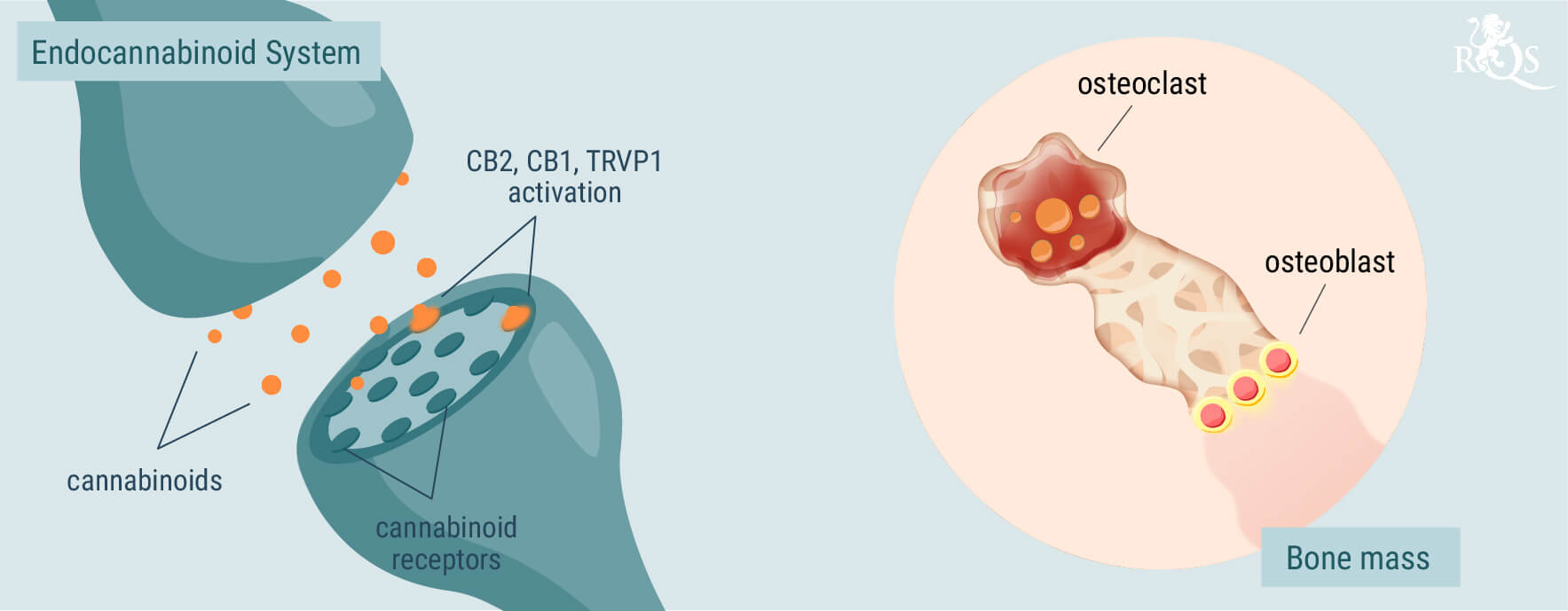
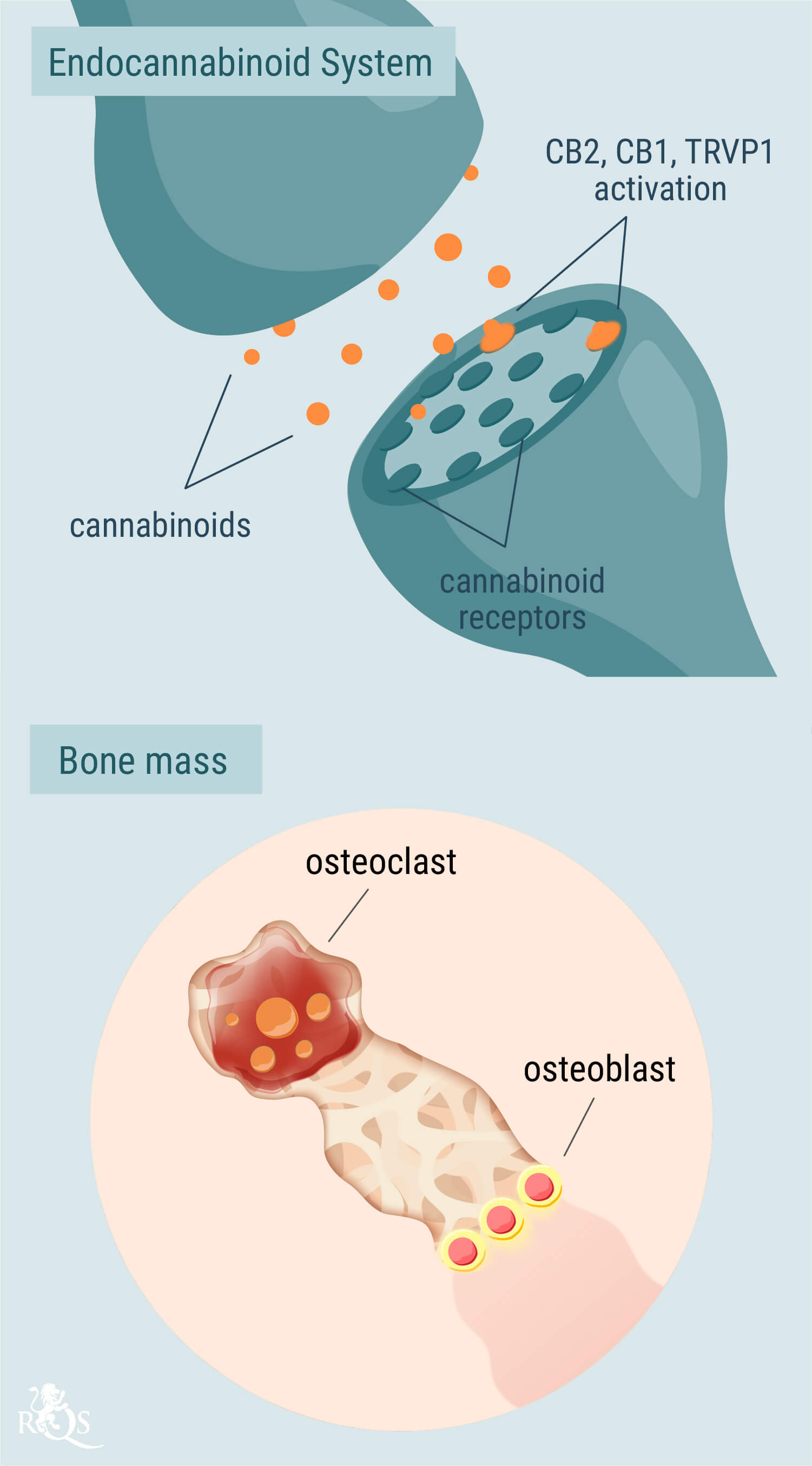
Cannabis and Osteoporosis
Osteoporosis simply refers to a reduction in bone density. There are various causes of the condition, including ageing, smoking, some medications, lack of exercise, and hormonal changes following menopause. Because the ECS helps to dictate bone remodelling, researchers view the system as a therapeutic target in the condition.
Remember, CB2 receptor activation promotes an increase in bone density. This means cannabinoids that specifically target this receptor may help with this condition. But things get quite complex when looking at different cannabinoids and their actions.
Our two major endocannabinoids (anandamide and 2-AG) target both the CB1 and CB2 receptors. However, anandamide also binds to TRPV1, a site associated with bone reduction.
THC and CBD often get the most attention when it comes to medical cannabis. THC binds to both CB1 and CB2, and CBD binds to TRPV1 while also increasing anandamide levels in the body. All of these molecules produce a nuanced effect that could have both positive and negative outcomes in osteoporosis.
However, another cannabis compound might work in a more favourable manner. The terpene–cannabinoid beta-caryophyllene binds directly to the CB2 receptor, without activating CB1 and TRPV1. For this reason, researchers are currently exploring its ability to promote osteoblast activity[1] and boost bone mineralisation.
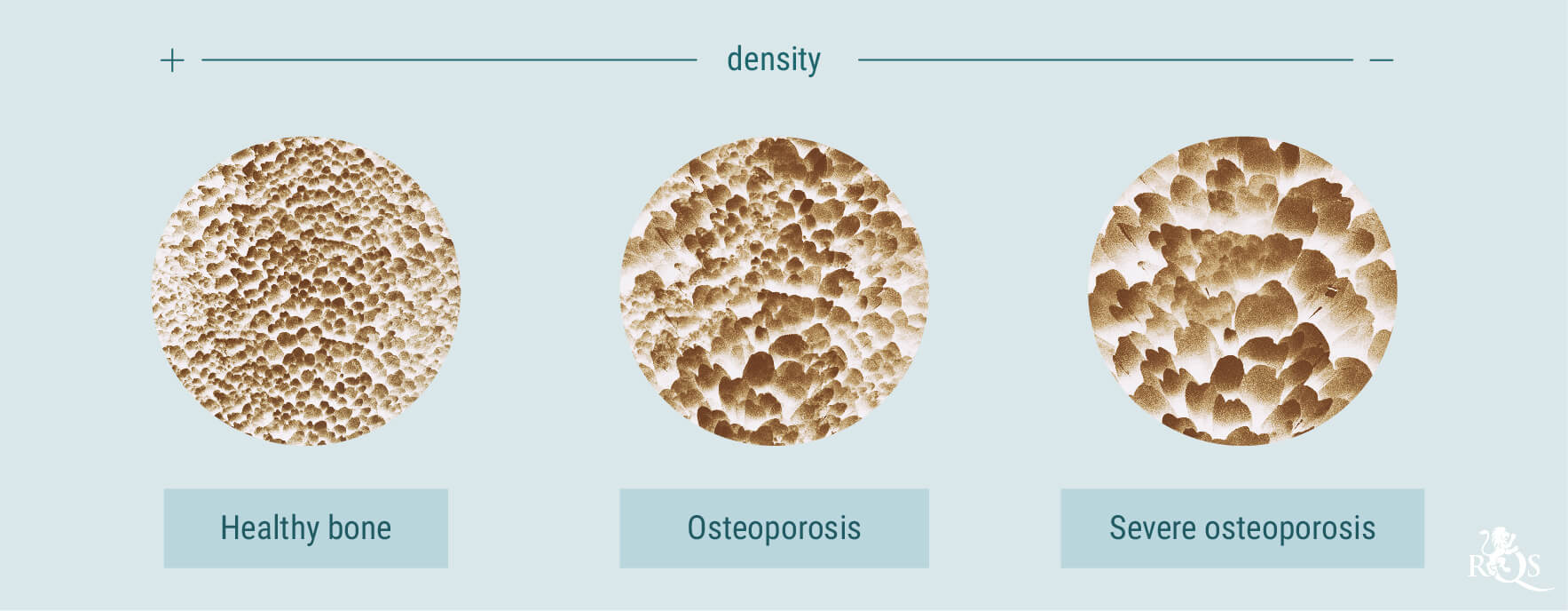
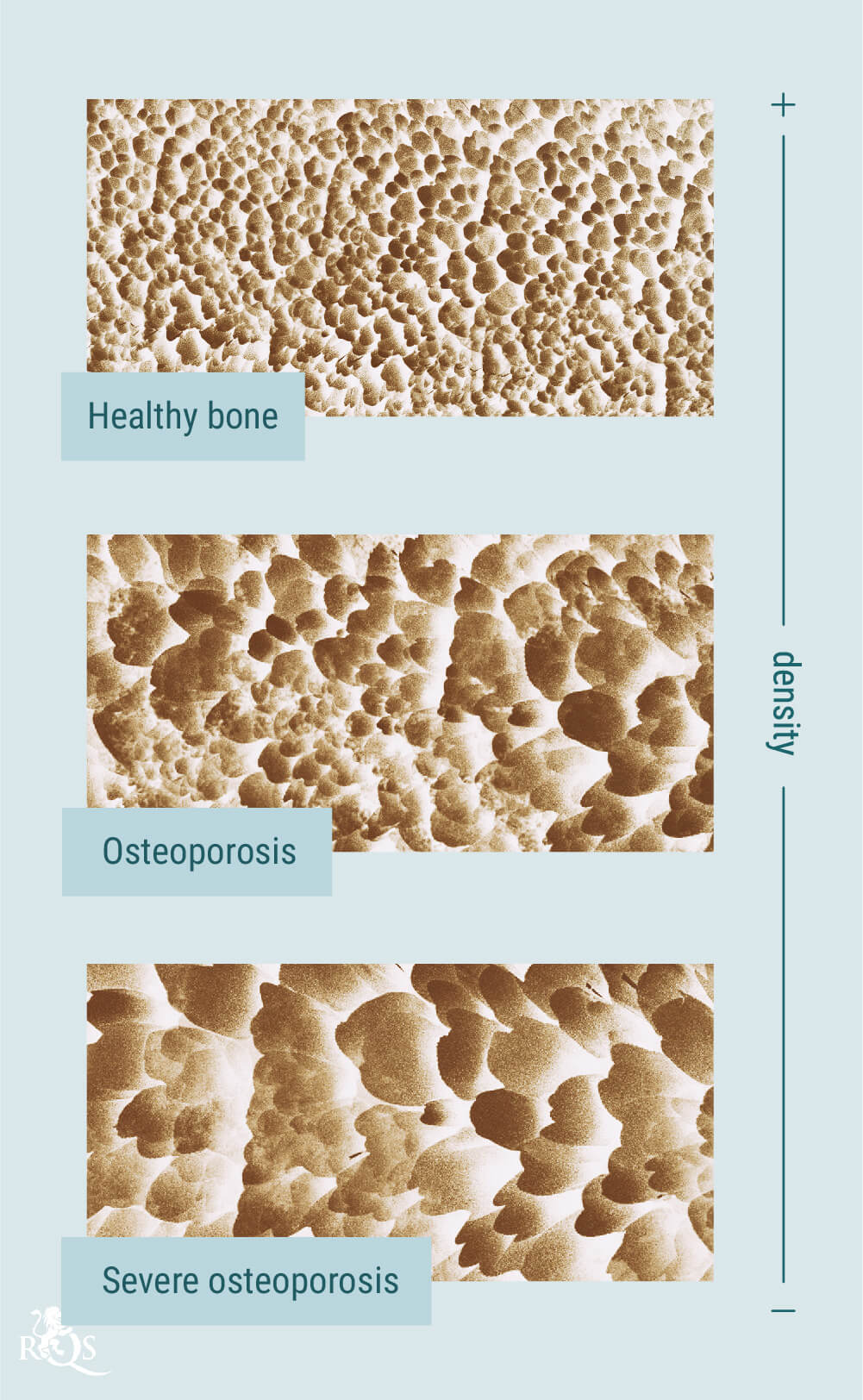
Marijuana and Rheumatoid Arthritis
As an autoimmune disease, rheumatoid arthritis attacks the joints—the place of articulation where two bones meet. Symptoms of swelling, redness, and reduced range of motion arise when the immune system mistakes bodily tissues as a threatening invader. This constant assault damages the lining of the joints and eventually leads to bone erosion and joint deformity.
Researchers are exploring ECS receptors as therapeutic targets for rheumatoid arthritis. It turns out this widespread system plays an important role in physiological processes that lead to the condition, and that components of the ECS work to reduce synovial inflammation[2] and cartilage destruction.
To get to grips with the importance of the ECS in rheumatoid arthritis treatment, we need to quickly touch on fibroblast-like synoviocytes (FLS). These cells are key culprits in the condition. Considered the “engine” of joint damage, they produce inflammatory proteins and exacerbate joint damage. Interestingly, patients with rheumatoid arthritis feature higher levels of CB2 expression on FLS cells.
Researchers have also found that activating this receptor leads to the reduced production of damaging proteins. Ongoing studies are now exploring cannabinoids that target this promising site. For example, researchers from Italy are testing beta-caryophyllene for its ability to mitigate joint damage[3] through CB2 receptors and PPARs (another proposed set of ECS receptors).
Cannabis and Fractures
Because the ECS regulates bone remodelling, it also plays a role in fracture healing. Speeding up fracture healing can help athletes get back to the field quicker, and older people recover quicker after a damaging autumn.
Although research is inconclusive, researchers are currently looking at CBD as a means of healing fractures. While the non-psychotropic cannabinoid doesn't bind to CB2 with much affinity, the goal is to determine if it can ramp up collagen healing through different means. Scientists are exploring how CBD might stimulate the expression of genes and start a cascade that leads to favourable collagen formation.
Differences Between THC and CBD for Bone Health
We need high-quality human trials to make an accurate statement here. But so far, CBD and beta-caryophyllene seem like two of the most promising cannabinoids in this context.
Ongoing studies are testing mixtures of CBD and THC, as well as CBD alone, in cellular models of fracture healing[4].
The Future of Cannabis for Bone Health
At this stage, it seems likely that cannabis will play an invested role in bone health in the future. The critical role of the ECS in bone maintenance and disease makes cannabinoids intriguing candidates to target our universal regulator. In the coming years, we’ll hopefully see human trials that determine the effects of various cannabis constituents on bone density and health.
- β-Caryophyllene promotes osteoblastic mineralization, and suppresses osteoclastogenesis and adipogenesis in mouse bone marrow cultures in vitro https://www.ncbi.nlm.nih.gov
- The endocannabinoid system and its therapeutic implications in rheumatoid arthritis - PubMed https://pubmed.ncbi.nlm.nih.gov
- β-Caryophyllene Mitigates Collagen Antibody Induced Arthritis (CAIA) in Mice Through a Cross-Talk between CB2 and PPAR-γ Receptors https://www.ncbi.nlm.nih.gov
- https://asbmr.onlinelibrary.wiley.com/doi/full/10.1002/jbmr.2513






































